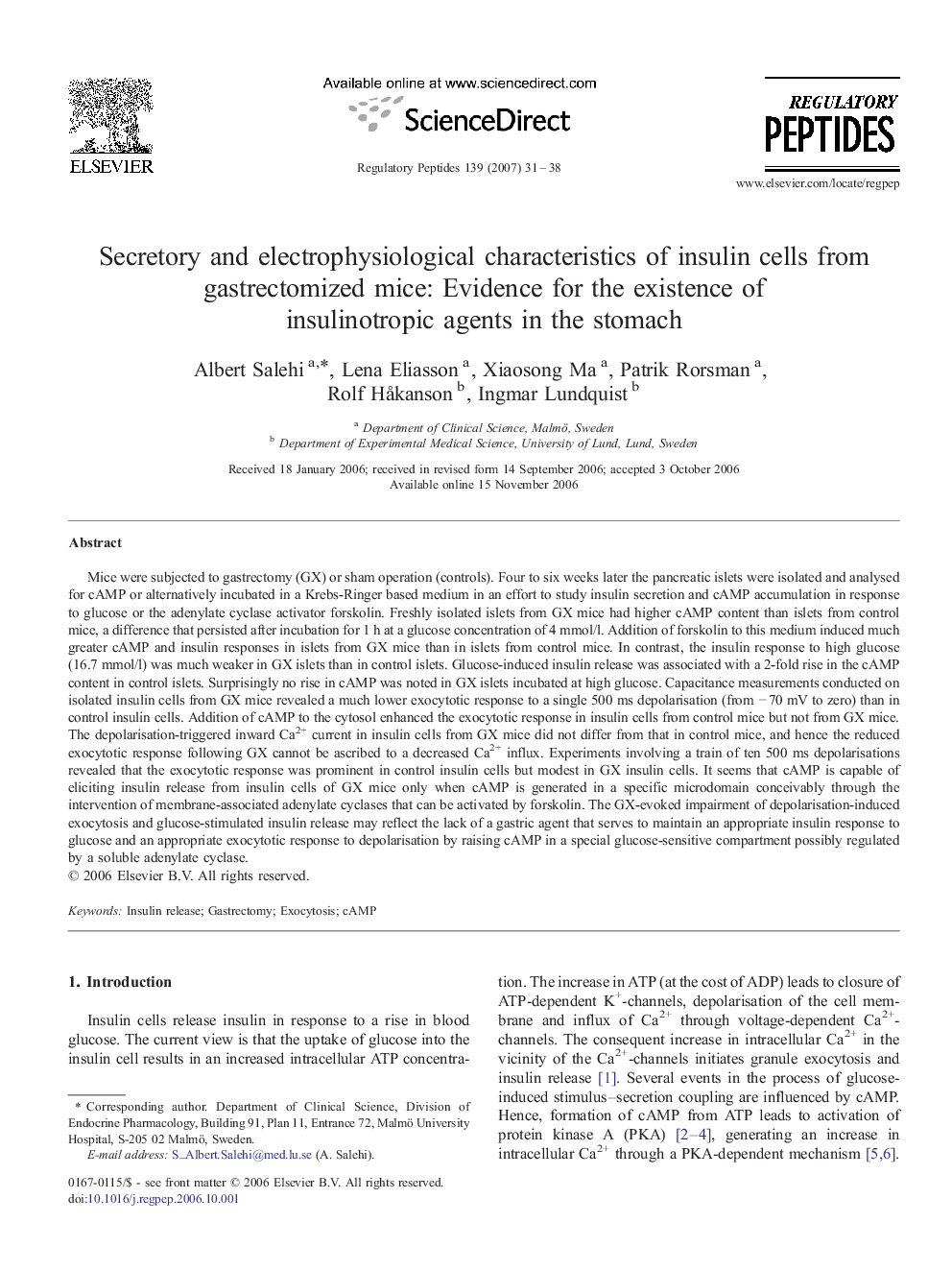| Article ID | Journal | Published Year | Pages | File Type |
|---|---|---|---|---|
| 2023436 | Regulatory Peptides | 2007 | 8 Pages |
Abstract
Mice were subjected to gastrectomy (GX) or sham operation (controls). Four to six weeks later the pancreatic islets were isolated and analysed for cAMP or alternatively incubated in a Krebs-Ringer based medium in an effort to study insulin secretion and cAMP accumulation in response to glucose or the adenylate cyclase activator forskolin. Freshly isolated islets from GX mice had higher cAMP content than islets from control mice, a difference that persisted after incubation for 1 h at a glucose concentration of 4 mmol/l. Addition of forskolin to this medium induced much greater cAMP and insulin responses in islets from GX mice than in islets from control mice. In contrast, the insulin response to high glucose (16.7 mmol/l) was much weaker in GX islets than in control islets. Glucose-induced insulin release was associated with a 2-fold rise in the cAMP content in control islets. Surprisingly no rise in cAMP was noted in GX islets incubated at high glucose. Capacitance measurements conducted on isolated insulin cells from GX mice revealed a much lower exocytotic response to a single 500 ms depolarisation (from â 70 mV to zero) than in control insulin cells. Addition of cAMP to the cytosol enhanced the exocytotic response in insulin cells from control mice but not from GX mice. The depolarisation-triggered inward Ca2+ current in insulin cells from GX mice did not differ from that in control mice, and hence the reduced exocytotic response following GX cannot be ascribed to a decreased Ca2+ influx. Experiments involving a train of ten 500 ms depolarisations revealed that the exocytotic response was prominent in control insulin cells but modest in GX insulin cells. It seems that cAMP is capable of eliciting insulin release from insulin cells of GX mice only when cAMP is generated in a specific microdomain conceivably through the intervention of membrane-associated adenylate cyclases that can be activated by forskolin. The GX-evoked impairment of depolarisation-induced exocytosis and glucose-stimulated insulin release may reflect the lack of a gastric agent that serves to maintain an appropriate insulin response to glucose and an appropriate exocytotic response to depolarisation by raising cAMP in a special glucose-sensitive compartment possibly regulated by a soluble adenylate cyclase.
Related Topics
Life Sciences
Biochemistry, Genetics and Molecular Biology
Biochemistry
Authors
Albert Salehi, Lena Eliasson, Xiaosong Ma, Patrik Rorsman, Rolf HÃ¥kanson, Ingmar Lundquist,
